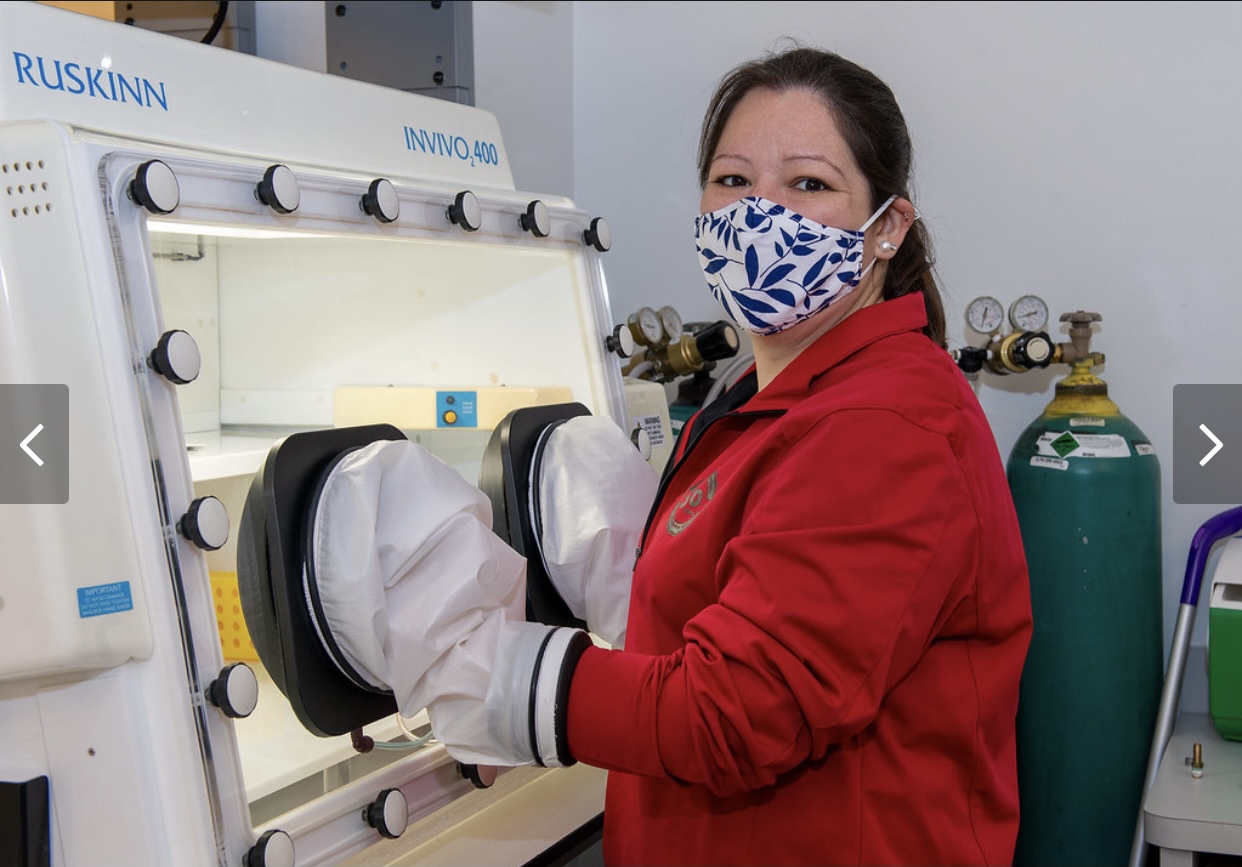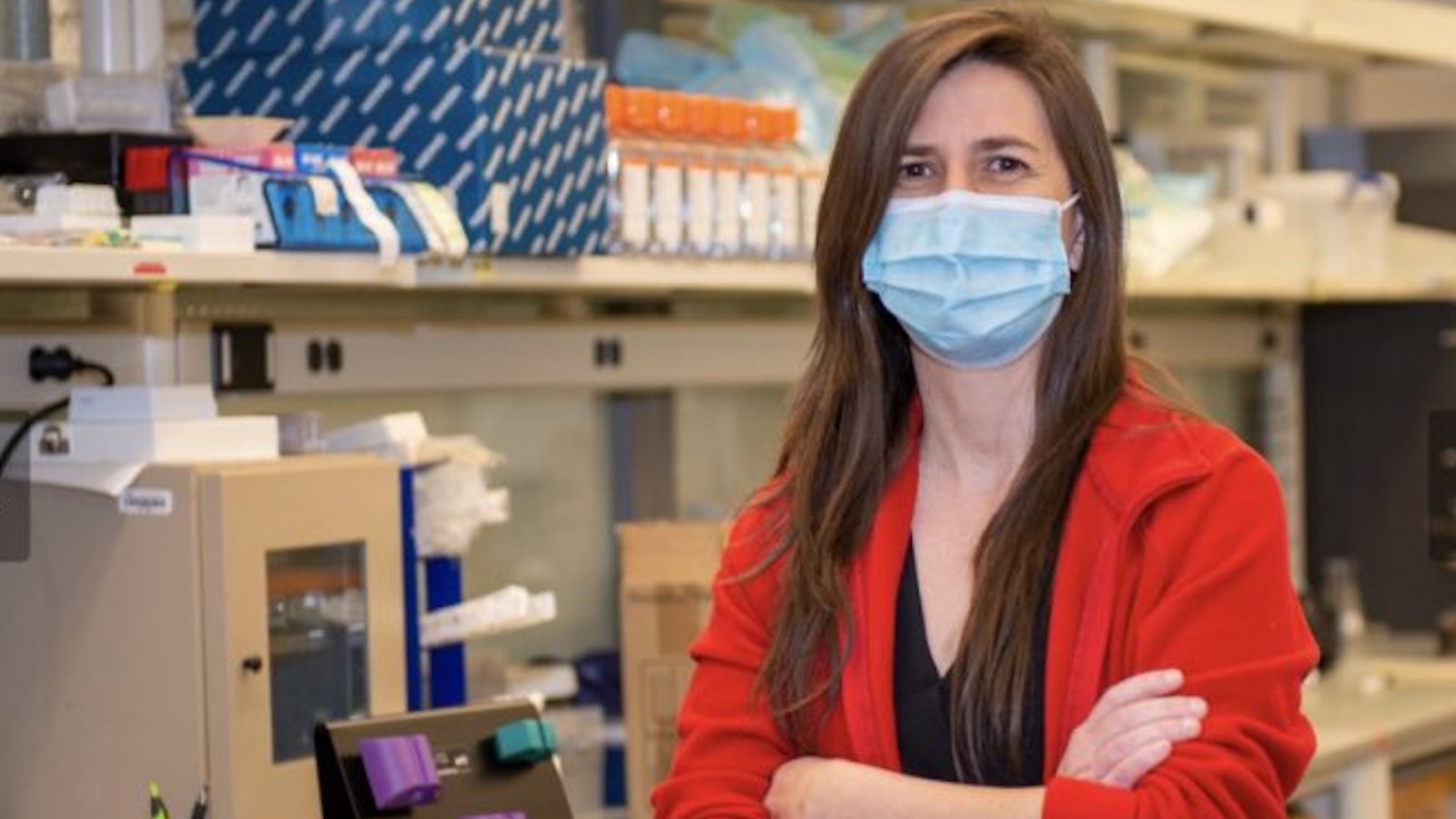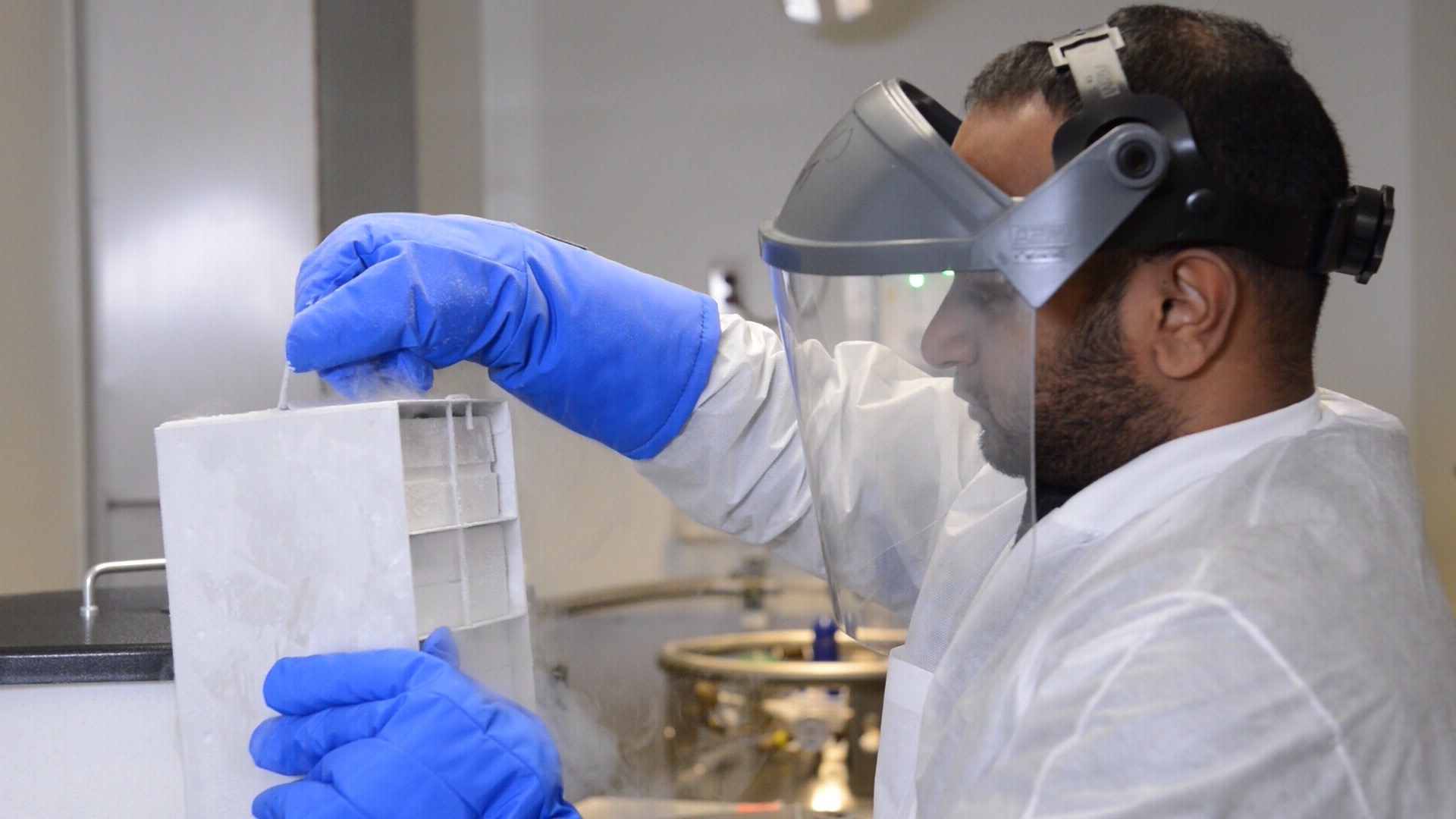Camila Hochman Mendez, PhD, Director of the Regenerative Medicine Research (RMR), has been spearheading the reorganization of the Department and merging the work of two different groups for the greater good of THI research. Dr. Hochman-Mendez has a basic research lab focused on engineering cardiac tissue models by combining decellularized extracellular matrix, induced pluripotent stem cells, and advanced bioreactor technologies. She also leads the Biorepository & Cell Profiling Core facility within her multifaceted department. One of the keys to the success of the Biorepository & Cell Profiling Core is Dr. Hochman-Mendez and her team’s successful maintenance of the facility’s College of American Pathologists (CAP) accreditation by guaranteeing that the equipment and environment are both controlled and Isensix monitored.

Cell Profiling + Basic Research
In cardiac tissue modeling, the biggest question is how to get immature cells to mature. Recently, scientists in the RMR labs developed a decellularized extracellular matrix powder that when added during differentiation enhanced cardiac lineage commitment and improved metabolic metabolism in the derived cells.
By utilizing equipment such as the multi-electrode array, researchers are able to understand how cells propagate the same electrical signal. The next step for this research will be adding electrical stimulation to this innovative differentiation protocol. The goal is to generate the most electrically and metabolically mature cardiomyocytes in the field.
Researchers in the RMR lab also produce their own decellularized extracellular matrix via two processes: perfusion decellularization and by utilizing a turbo-less agitation device. Both processes help them to obtain the acellular extracellular matrix used in RMR lab’s clinical and basic research programs.
Demonstrating the synergy between THI Biorepository & Cell Profiling Core and basic research, Dr. Hochman-Mendez developed an NHLBI R21-funded cardiac microtissue testbed using decellularized extracellular matrix and patient samples from improvers and non-improvers who participated in Cardiovascular Cell Therapy Research Network (CCTRN) clinical trials. Findings are expected to provide new insights into specific cellular and extracellular contributors to successful and unsuccessful responses to cell therapy in chronic heart failure patients.
Bioreactors
The RMR lab developed a new bioreactor to have a 100% closed system in which decontamination is minimized and the incubation environment can be controlled to produce more electrically and mechanically mature engineered heart constructs repopulated with multiple cardiac cells. In this contained yet tunable environment, a microcontrolled multi-plump-driven system mimics a regular cardiac cycle in the left ventricle. This system provides mechanical and electrical stimuli to cells while simultaneously maintaining aortic pressure needed for optimal delivery of nutrients and oxygen.
Exploring New Directions for Heart Failure (HFpEF)
Heart failure with preserved ejection fraction (HFpEF) accounts for approximately half of all heart failure cases and for which no treatment exists. The pathophysiology of this multifactorial syndrome is poorly understood, but recent studies suggest that alterations in cardiac titin contribute to the increased cardiomyocyte stiffness characteristic of HFpEF. Dr. Hochman-Mendez is currently investigating the effects of a novel laminin polymer (PolyLM) on titin isoform expression in vitro and ex vivo models of diastolic heart failure.
These studies are expected to provide strong preliminary data for moving to in vivo studies exploring the potential benefits of PolyLM delivery on titin-based cardiomyocyte stiffness, inflammation, and fibrosis in HFpEF.
Biorepository and Cell Profiling Core Facility: Strategies
Sample storage is the essence of what this facility brings to RMR, THI, and our customers in the Texas Medical Center and beyond. The College of American Pathologists (CAP) accredited THI Biorepository & Cell Profiling Core of the only facilities of its kind in Texas and one of 27 nationwide. The RMR team prides itself on being a point of contact for collaborators via sample storage and analysis. This core facility is able to guarantee quality control and expert shipping of human specimens and genetic materials used in clinical research investigations.

.svg)




